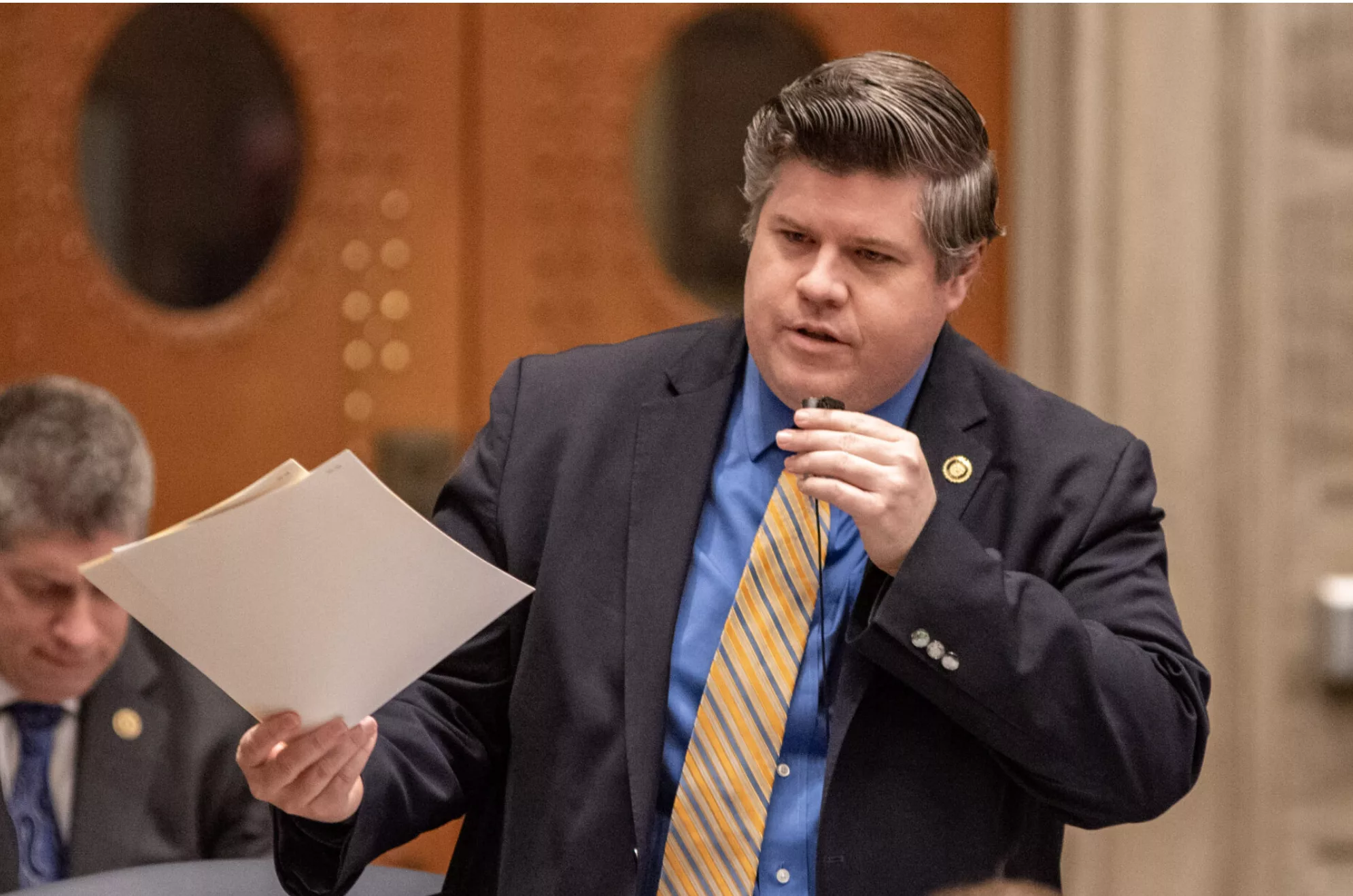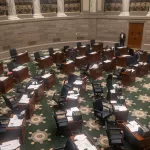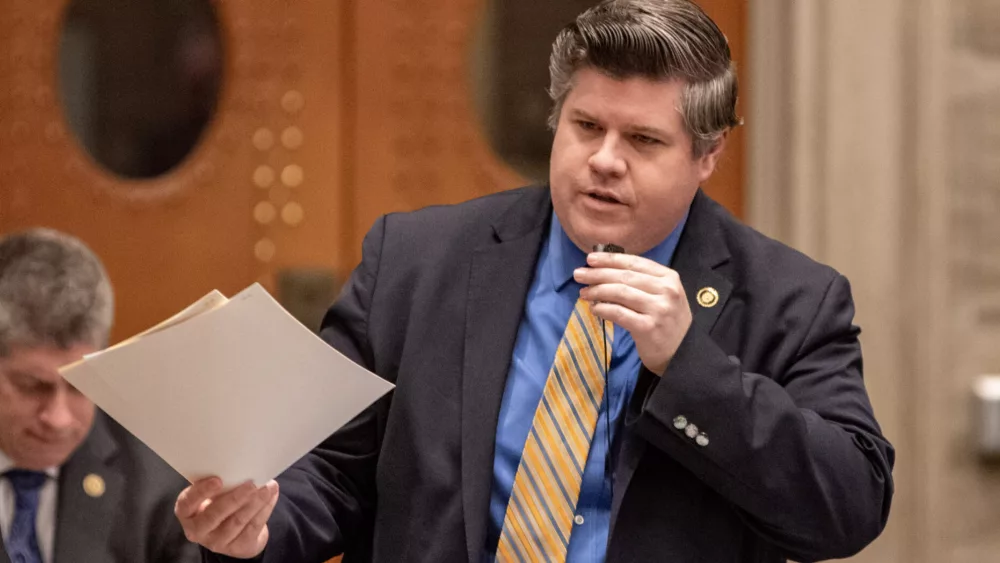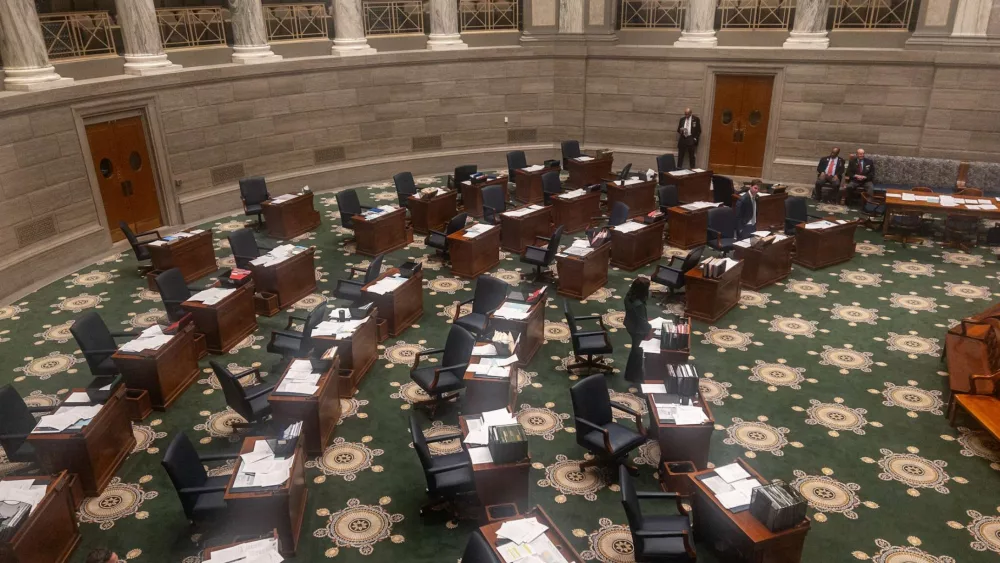
The bill debated Tuesday in the Senate General Laws Committee is the first of several tax cut proposals expected to receive attention during this year’s session
BY: RUDI KELLER
Missouri Independent
Missouri Republicans took their first legislative steps toward a promised tax cut on Tuesday, with a Senate committee debating a $300 million exemption for profits from the sale of a farm, business or assets like cryptocurrency.
The proposal to exempt long-term capital gains from Missouri income tax would help bring investment and jobs to the state, said state Sen. Curtis Trent.
“The capital gains tax is a tax that punishes investment,” said Trent, a Republican from Springfield. “It makes it more difficult to attract dollars, and with the jobs and business growth into the state of Missouri, it disincentivizes savings and investment by individuals.”
Trent presented the bill to the Senate General Laws Committee, which he chairs. No vote was held.
The bill is the first of many ideas for cutting taxes expected to get traction this session. Gov. Mike Kehoe campaigned for office on a promise to reduce, and eventually eliminate the state income tax.
Kehoe has not discussed the details of his plan publicly, but is expected to include his ideas when he presents his budget and policy message on Jan. 28 to the General Assembly.
On Wednesday, the Missouri House will hold its first hearing on tax proposals, with bills to eliminate all tax brackets to create a flat tax, to repeal the corporate income tax and to create a fund to finance future tax cuts before the Special Committee on Tax Reform.
Missouri has healthy fund balances in the treasury — $4.1 billion in just the general revenue fund as of Dec. 31 — but tax receipts are expected to fall slightly or remain flat for at least the coming 18 months.
The capital gains tax cut would reduce general revenue — about $13.4 billion in the year that ended June 30 — by about $300 million annually, the fiscal note for Trent’s bill states.
Repealing the corporate income tax would reduce revenue by about $900 million annually.
No fiscal note has been prepared for the proposal to eliminate tax brackets and charge all taxpayers the current top rate, 4.7%, for all taxable income. The major impact of that change would be to increase, by about $70, the tax each individual pays on portions of taxable income below $9,000.
Trent’s bill heard Tuesday would eliminate the state income tax on capital gains by allowing taxpayers to deduct the portion of their income reported as long-term capital gains on their federal returns. For someone with about $50,000 in capital gains income, the savings would be more than $1,500, which is what someone who only had wage income of that amount would pay in state income tax.
Income from long-term capital gains is easily identifiable from federal returns because it is treated differently than income from wages. Under federal tax law, profits on assets held for more than a year are taxed at lower rates than wages or the gains from assets sold after a short period.
“It unfairly taxes inflation, and we have been in a high inflation environment for the last several years,” Trent said. “The increase in the value of an asset is not necessarily because of true gains in that asset’s value, but just in the devaluation of the currency.”
Only eight states, including Tennessee, exempt all capital gains from income taxes. Two states that border on Missouri, Arkansas, and Oklahoma, have special treatment for some capital gains. For example, Oklahoma exempts capital gains on the sale of Oklahoma property owned for at least five consecutive years, or the sale of stock in an Oklahoma company or partnership held for at least two consecutive years.
Business and farm groups testified that eliminating the tax on capital gains would promote the transfer of agricultural land from retiring farmers to new owners, encourage small business owners to expand and preserve family fortunes.
“This would be very helpful for small businesses that have had a rough few years,” said Brad Jones, lobbyist for the National Federation of Independent Businesses.
The main opposition to major tax cuts this year is likely to come from groups concerned about possible future spending cuts.
Brian Colby, a lobbyist for the liberal Missouri Budget Project, testified in opposition, citing the “large fiscal note and no offset on revenue losses.”






